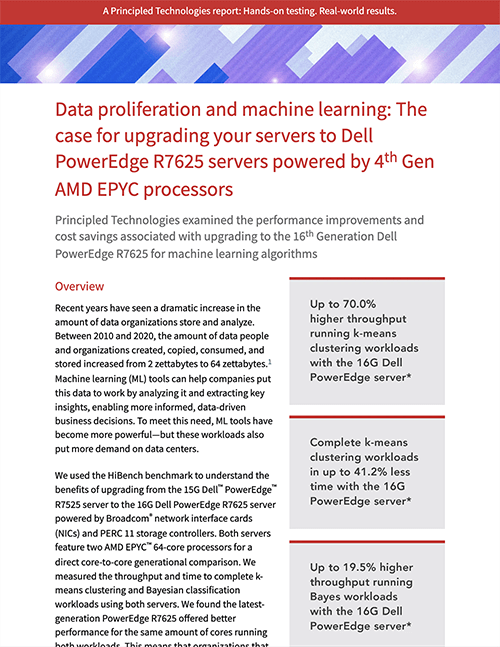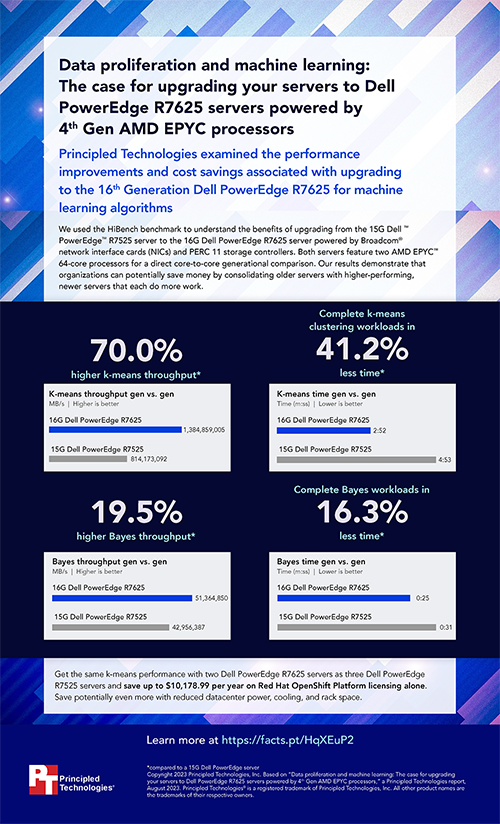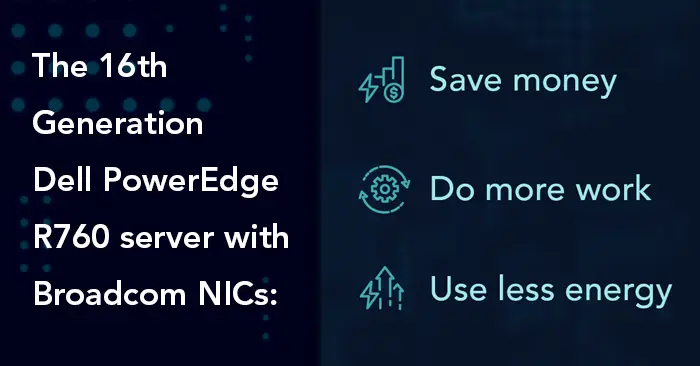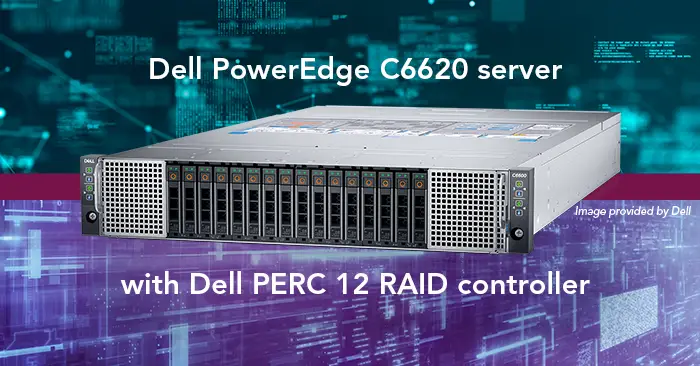
For many businesses, the widespread availability of big data and data analytics tools—particularly those powered by machine learning (ML) and artificial intelligence (AI)—has the potential to fuel dramatic improvements in operational efficiency, marketing effectiveness, and strategic decision-making. To realize the revolutionary potential of all this big data fuel, analysts need data processing engines—servers—that can churn through ever-increasing amounts of data more quickly than ever before. Server upgrades provide a way for companies to increase their data-handling capabilities, but purchasers face the challenge of balancing the need for higher performance with concerns about increased licensing and energy costs. Ideally, server upgrades would provide organizations with the power to excel in a big data future in a cost- and energy-efficient way.
We used the HiBench big data benchmark to understand the potential performance improvements and cost savings associated with upgrading from a 15G Dell PowerEdge R7525 server powered by 3rd Gen AMD EPYC 64-core processors to a 16G Dell PowerEdge R7625 server powered by 4th Gen AMD EPYC 64-core processors. We focused on two Apache Spark capabilities—k-means clustering and Bayesian classification—to measure each server’s throughput and speed while handling ML-related tasks. In our tests, the 16G PowerEdge R7625 had 70.0 percent higher throughput and completed the k-means workload 41.2 percent faster than the 15G PowerEdge R7525. This means that organizations that upgrade to the latest-generation R7625 servers could process these ML workloads faster, allowing them to update their data models and leverage insights more quickly.
In addition, the fact that a single R7625 handled up to 1.7 times as much k-means work as a single R7525 means that two R7625s could process 3.4 times as much k-means work as one R7525. Viewing it another way, two R7625s can process the same amount of work as three R7525s—with capacity to spare. An organization that upgrades from R7525 to R7625 servers could reduce the number of servers required to do the same amount of work and thus also save money on energy, cooling, and licensing.
To dig into the details of our Dell PowerEdge upgrade ML performance comparison tests, check out the report and infographic below.
Principled Technologies is more than a name: Those two words power all we do. Our principles are our north star, determining the way we work with you, treat our staff, and run our business. And in every area, technologies drive our business, inspire us to innovate, and remind us that new approaches are always possible.







